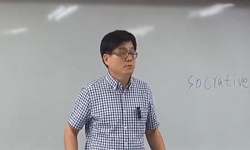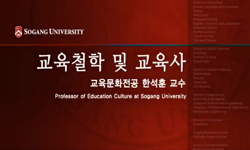본 연구의 목적은 구성주의가 갖는 주관적 인식론을 수정하여 기독교교육학적 구성주의로 성립할 수 있는 근거를 마련하고 그 이론을 제시하는 데에 있다. 이를 위해 본 연구자는 구성주의...
http://chineseinput.net/에서 pinyin(병음)방식으로 중국어를 변환할 수 있습니다.
변환된 중국어를 복사하여 사용하시면 됩니다.
- 中文 을 입력하시려면 zhongwen을 입력하시고 space를누르시면됩니다.
- 北京 을 입력하시려면 beijing을 입력하시고 space를 누르시면 됩니다.
https://www.riss.kr/link?id=T17096507
- 저자
-
발행사항
천안 : 백석대학교 기독교전문대학원, 2023
-
학위논문사항
학위논문(박사) -- 백석대학교 기독교전문대학원 , 교육학 기독교교육학 , 2024. 8
-
발행연도
2023
-
작성언어
한국어
-
주제어
기독교교육학적 구성주의 ; 주관적 인식의 경향성 ; 구성주의의 수정 ; 교육신학 ; 교육철학 ; 인지과학 ; 교육심리학 ; 교수-학습이론
-
발행국(도시)
충청남도
-
형태사항
140 ; 26 cm
-
일반주기명
지도교수: 주정관
-
UCI식별코드
I804:44020-200000804472
- 소장기관
-
0
상세조회 -
0
다운로드
부가정보
국문 초록 (Abstract)
키워드: 기독교교육학적 구성주의, 주관적 인식의 경향성, 구성주의의 수정, 교육신 학, 교육철학, 인지과학, 교육심리학, 교수-학습이론
본 연구의 목적은 구성주의가 갖는 주관적 인식론을 수정하여 기독교교육학적 구성주의로 성립할 수 있는 근거를 마련하고 그 이론을 제시하는 데에 있다. 이를 위해 본 연구자는 구성주의가 가지고 있는 주관적 인식론을 절대적인 법칙 이 아니라 개인이 가지고 있는 하나의 경향성으로 파악하고 이러한 인식적 오류는 수정될 수 있으며 인간의 주관적 인식을 벗어나 객관성을 추구하려 노력할 때 상 대주의나 유아론의 함정에서 벗어날 수 있음을 주장하였다. 개인이 구성하는 지식 은 그 대상에 대한 주관적 해석과 이해이지만 그러나 지식은 논의되고 축적됨으로 써 거대 담론을 이루는 것이며 주관성을 포괄하고 넘어 객관성을 지향하게 되는 것이다. 따라서 구성주의가 집중하는 지식의 개별적, 주관적, 적응적인 미시적 측 면만이 아니라 인간은 지식의 축적과 객관성 추구를 통해 진리에 도달할 수 있다 는 거시적 측면을 이해할 때 구성주의는 더 이상 지식의 모호성을 유발하는 이론 이 아니라 인간 사고의 특성을 이해하고 인간의 인지구조를 통해 효과적인 교육을 수행할 수 있도록 돕는 교육철학이자 교수-학습이론이 될 수 있을 것이다. 한편 성경은 하나님의 말씀이 타인의 사전지식이나 이해의 정도와 상관없이 선 포되기만 하면 모두 수용될 수 있다고 말하지 않는다. 오히려 우리는 지식의 미시 적 측면을 인정하고 주관적 인식의 불평형화를 야기함으로써 효과적으로 교육의 목적을 달성하고자 하는 기독교교육학적 구성주의의 가능성을 볼 수 있는 것이다. 따라서 본 연구는 교육신학과 인지심리학과 이를 통해 수정된 구성주의의 토대 위에서 기독교교육학적 구성주의라는 기독교교육의 새로운 패러다임을 제안하고자 하였다.
키워드: 기독교교육학적 구성주의, 주관적 인식의 경향성, 구성주의의 수정, 교육신 학, 교육철학, 인지과학, 교육심리학, 교수-학습이론
다국어 초록 (Multilingual Abstract)
To this end, the researcher identified the subjective epistemology of constructivism as a tendency of individuals rather than an absolute law and argued that we can correct cognitive errors and escape the trap of relativism or solipsism when trying to pursue objectivity beyond human subjective cognition. The knowledge that an individual constructs is a subjective interpretation and understanding of the object, but as knowledge is discussed and accumulated, it constitutes a metadiscourse, encompassing subjectivity and going beyond it to aim for objectivity. Therefore, when we understand not only the individual, subject, and adaptive microscopic aspects of knowledge that constructivism focuses on, but also macroscopic aspects that humans can reach the truth through the accumulation of knowledge and the pursuit of objectivity, constructivism will no longer be a theory that causes ambiguity in knowledge, but will be an educational philosophy and teaching and learning theory that helps us understand the characteristics of human thinking and conduct effective education through human cognitive structures.
On the other hand, the Bible does not say that the Word of God can be accepted by all as long as proclaimed, regardless of the differences in prior knowledge or the degree of understanding of others. Instead, through a biblical and theological approach, we can see the possibility of Christian educational constructivism that seeks to effectively achieve the purpose of education by acknowledging the microscopic aspects of knowledge and causing the disequilibrium of subjective cognition.
Therefore, this study aimed to propose a new paradigm of Christian education called Christian educational constructivism based on the foundation of theology of education and cognitive psychology and constructivism modified through them.
Keywords: Christian Educational Constructivism, The Tendency to Subjectivity of Cognition, Modification of Constructivism, Theology of Education, Philosophy of Education, Cognitive Psychology, Educational Psychology, Teaching and Learning Theory
The purpose of this study is to present the theory that modifies the subjective epistemology of constructivism and establishes the rationale for Christian educational constructivism. To this end, the researcher identified the subjective epistemology...
The purpose of this study is to present the theory that modifies the subjective epistemology of constructivism and establishes the rationale for Christian educational constructivism.
To this end, the researcher identified the subjective epistemology of constructivism as a tendency of individuals rather than an absolute law and argued that we can correct cognitive errors and escape the trap of relativism or solipsism when trying to pursue objectivity beyond human subjective cognition. The knowledge that an individual constructs is a subjective interpretation and understanding of the object, but as knowledge is discussed and accumulated, it constitutes a metadiscourse, encompassing subjectivity and going beyond it to aim for objectivity. Therefore, when we understand not only the individual, subject, and adaptive microscopic aspects of knowledge that constructivism focuses on, but also macroscopic aspects that humans can reach the truth through the accumulation of knowledge and the pursuit of objectivity, constructivism will no longer be a theory that causes ambiguity in knowledge, but will be an educational philosophy and teaching and learning theory that helps us understand the characteristics of human thinking and conduct effective education through human cognitive structures.
On the other hand, the Bible does not say that the Word of God can be accepted by all as long as proclaimed, regardless of the differences in prior knowledge or the degree of understanding of others. Instead, through a biblical and theological approach, we can see the possibility of Christian educational constructivism that seeks to effectively achieve the purpose of education by acknowledging the microscopic aspects of knowledge and causing the disequilibrium of subjective cognition.
Therefore, this study aimed to propose a new paradigm of Christian education called Christian educational constructivism based on the foundation of theology of education and cognitive psychology and constructivism modified through them.
Keywords: Christian Educational Constructivism, The Tendency to Subjectivity of Cognition, Modification of Constructivism, Theology of Education, Philosophy of Education, Cognitive Psychology, Educational Psychology, Teaching and Learning Theory
목차 (Table of Contents)
- 목차 ⅰ
- 국문 초록 ⅳ
- 제1장 서론 1
- 제1절 문제 제기와 연구 목적 1
- 1. 문제 제기 1
- 목차 ⅰ
- 국문 초록 ⅳ
- 제1장 서론 1
- 제1절 문제 제기와 연구 목적 1
- 1. 문제 제기 1
- 2. 연구 목적 2
- 제2절 연구 방법과 한계 2
- 1. 연구 방법 3
- 2. 연구의 범위 및 한계 4
- 제2장 구성주의의 인식론적 배경 5
- 제1절 주관적 인식론의 철학적 배경 5
- 1. 주관적 인식론의 철학적 태동 5
- 2. 주관적 인식론의 철학적 발전 7
- 제2절 피아제의 발생적 인식론 15
- 1. 발생적 인식론 15
- 2. 피아제 인지발달 이론의 기본 개념 15
- 3. 피아제의 인지발달 단계 20
- 제3절 소결론 22
- 제3장 구성주의 이론과 교육 26
- 제1절 구성주의 이론 26
- 1. 급진적 구성주의 27
- 2. 사회적 구성주의 28
- 제2절 구성주의와 교육 30
- 1. 근현대 교육철학과 구성주의 30
- 2. 구성주의 교수-학습이론 34
- 제4장 새로운 패러다임의 필요성과 기독교교육학적 구성주의의 토대 41
- 제1절 구성주의의 한계와 수정 41
- 1. 진리의 문제 41
- 2. 지식의 한계 43
- 3. 학습자의 한계 51
- 4. 교사, 학습환경의 한계 52
- 제2절 새로운 기독교교육학적 패러다임의 필요성 55
- 1. 전통적인 성경공부 교수-학습의 문제점과 한계 55
- 2. 기독교교육학적 구성주의의 필요성 59
- 제3절 새로운 패러다임으로서의 기독교교육학적 구성주의 이론 정립의 토대 61
- 1. 도입 질문과 기독교교육학적 구성주의의 패러다임적 의의 61
- 2. 교육신학적 토대 63
- 3. 인지심리학적 토대 67
- 4. 수정된 구성주의적 토대 73
- 제5장 기독교교육학적 구성주의의 이론적 틀 80
- 제1절 절대적 진리의 존재와 주관적 인식을 활용한 교육 80
- 1. 절대적 진리와 객관적 지식의 존재 80
- 2. 창조주에 의해 부여된 지적 능력과 한계 81
- 3. 주관적 인식을 활용한 교육 82
- 4. 인지발달을 통한 주관적 지식과 객관적 지식의 일치 83
- 제2절 지식의 의미와 지식의 종류 84
- 제3절 지식 구성의 의미와 주관적 인식 87
- 제4절 주관적 인식 변화를 위한 접근 92
- 제5절 기독교교육학적 구성주의가 갖는 교육의 대안적 기능 93
- 제6절 기독교교육학적 구성주의의 교수-학습 원리 95
- 1. 객관적 진리 추구와 지식의 주관적 상황으로의 전이 95
- 2. 성령의 사역 96
- 3. 학습자의 능동적 참여를 위한 교사의 역할과 학습환경 97
- 4. 학습자의 사전 지식에 대한 고려 98
- 5. 맥락을 이용한 교육 99
- 6. 협동적 학습 99
- 7. 교재의 활용 100
- 제7절 구성주의 성경 교수-학습의 예시 101
- 1. 운영 방법 101
- 2. 교수-학습의 예시 102
- 3. 소결론 118
- 제6장 결론 120
- 참고문헌 124
- 영문 초록 135












